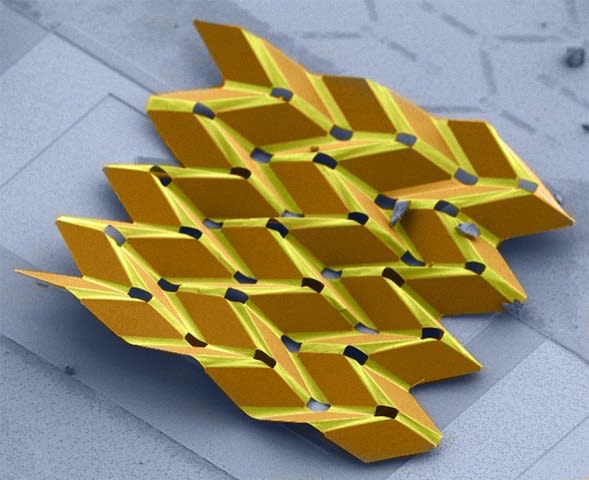
Army-funded researchers created nanosized robots that could enable locomotion, novel metamaterial design, and high-fidelity sensors. Cornell University researchers created micron-sized shape memory actuators that fold themselves into 3D configurations and allow atomically thin 2D materials with just a quick jolt of voltage. Once the material is bent, it holds its shape, even after the voltage is removed.
This work could make it possible for a million fabricated microscopic robots releasing from a wafer to fold themselves into shape, crawl free, and go about their tasks, even assembling into more complicated structures. The machines fold themselves within 100 milliseconds. They can also flatten and refold themselves thousands of times and they only need a single volt to be powered to life.

